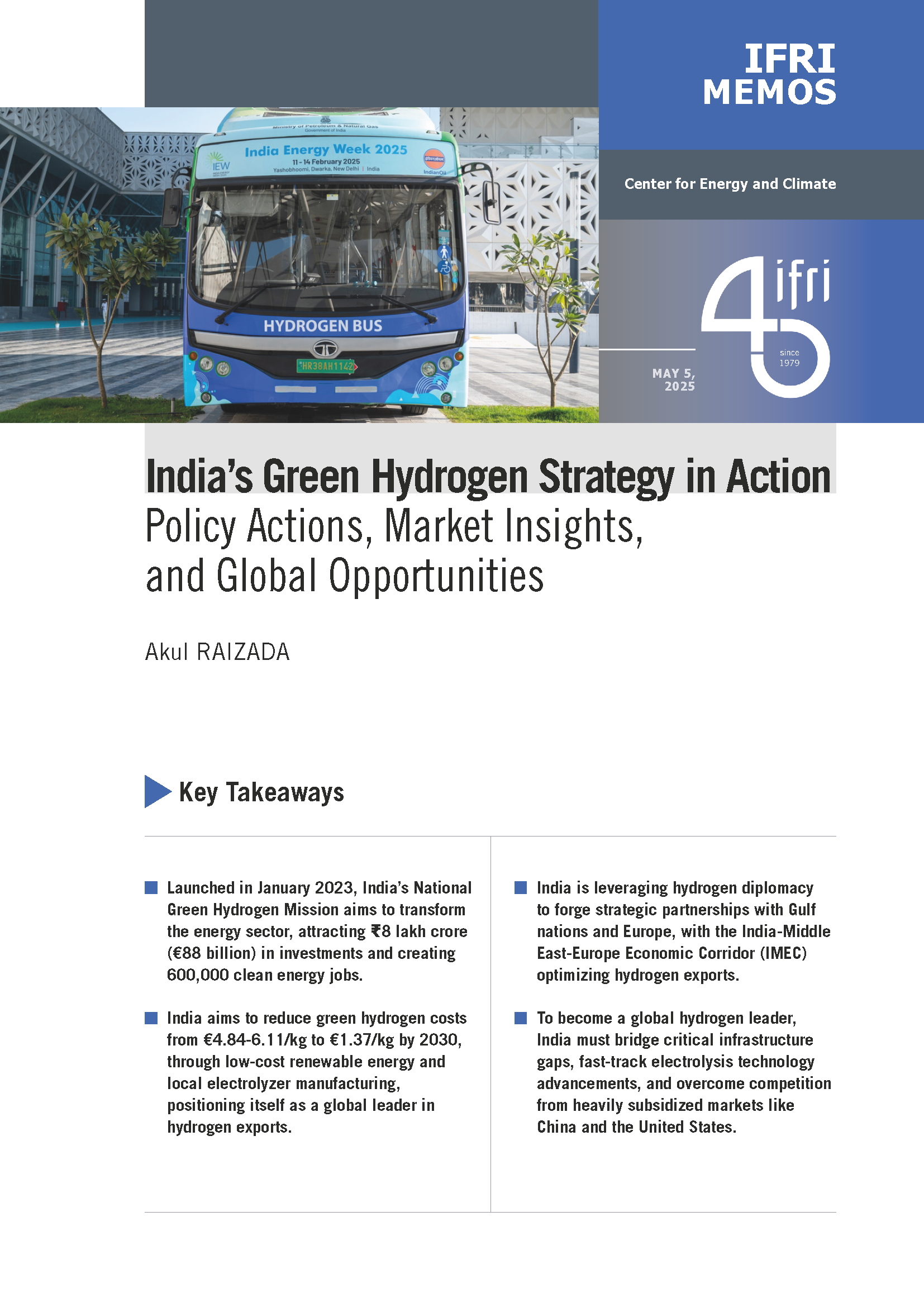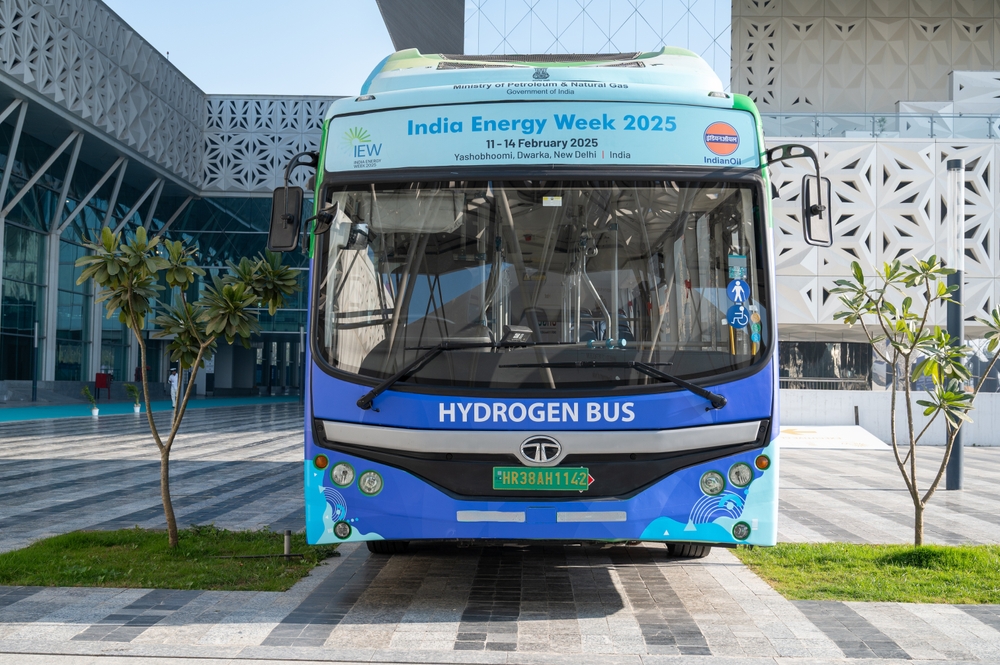India’s Green Hydrogen Strategy in Action: Policy Actions, Market Insights, and Global Opportunities

India is poised to remain the world’s fastest-growing major economy, and this rapid growth is driving a sharp rise in energy demand. As the most populous country on the planet, India urgently needs to decarbonize its energy systems.

This policy brief is the third in a series analysing India’s energy transition’s financial and regulatory challenges. Previous analyses focused on financially distressed distribution companies (DISCOMs) and the substantial investments required to upgrade transmission infrastructure and expand battery storage capacity. This edition turns its focus to green hydrogen—a transformative opportunity that has the potential to redefine industrial growth and enhance energy security.
Key takeaways :
- Launched in January 2023, India's National Green Hydrogen Mission aims to transform the energy sector, attracting ₹8 lakh crore (€88 billion) in investments and creating 600,000 clean energy jobs.
- India aims to reduce green hydrogen costs from €4.84-6.11/kg to €1.37/kg by 2030 through low-cost renewable energy and local electrolyser manufacturing, positioning itself as a global leader in hydrogen exports.
- India is leveraging hydrogen diplomacy to forge strategic partnerships with Gulf nations and Europe, with the India-Middle East-Europe Economic Corridor (IMEC) optimizing hydrogen exports.
- To become a global hydrogen leader, India must bridge critical infrastructure gaps, fast-track electrolysis technology advancements, and overcome competition from heavily subsidized markets like China and the US.

Available in:
Themes and regions
ISBN / ISSN
Share
Download the full analysis
This page contains only a summary of our work. If you would like to have access to all the information from our research on the subject, you can download the full version in PDF format.
India’s Green Hydrogen Strategy in Action: Policy Actions, Market Insights, and Global Opportunities
Related centers and programs
Discover our other research centers and programsFind out more
Discover all our analysesFinancial Tools for Boosting Resilience of CRM Value Chains and Strategic Stockpiling
Critical Raw Material (CRM) value chains are more vulnerable than ever and entire vital industries in Europe are now at risk if supplies are not secured through strategic and urgent actions, given mounting geopolitical confrontation, resource nationalism, growing demand and limited supply increase.
Placing the EU on a Warfare Footing: Energy and Raw Materials Priorities for 2026
The year 2025 has confirmed that one must prepare for much worse in the field of geopolitics and geoeconomics as the intensity and frequency of shocks increase and as the European Union (EU) has no more stable flanks now that crises with the United States (US) become so frequent and reveal a systemic rift. In the world, barriers to trade multiply and dependencies are weaponized.
Brazil One Year Away from the October 2026 General Elections
Brazil’s general elections will be held on October 4, 2026, to elect the president, vice-president, members of the National Congress, governors, deputy governors and state legislative assemblies. For the presidential and gubernatorial elections, a second round will be held on October 25 if no candidate obtains a majority of the votes in the first round.
COP30: An Inflection Point for Climate Action and Governance
The 30th Conference of the Parties (COP30), opening in Belém, Brazil, on November 10th 2025, convenes at a perilous moment.











